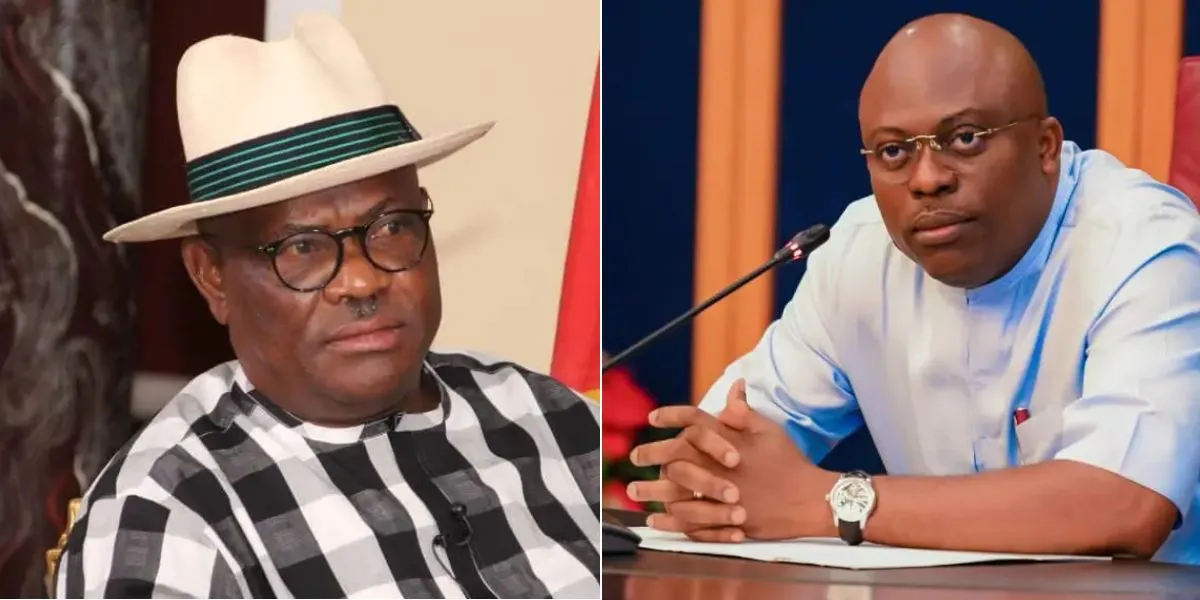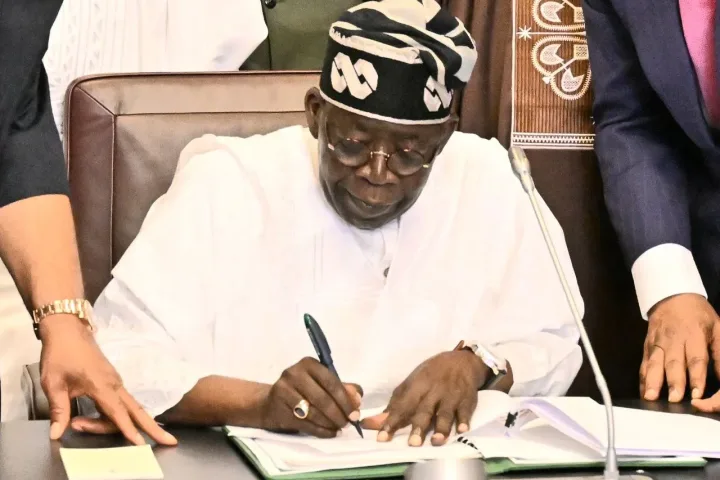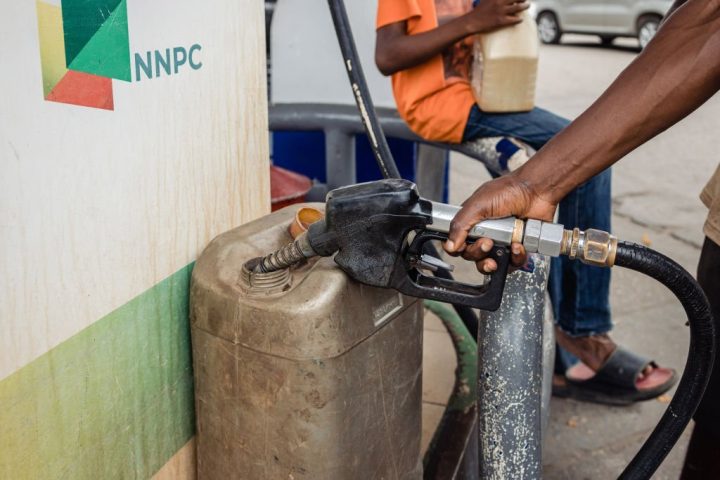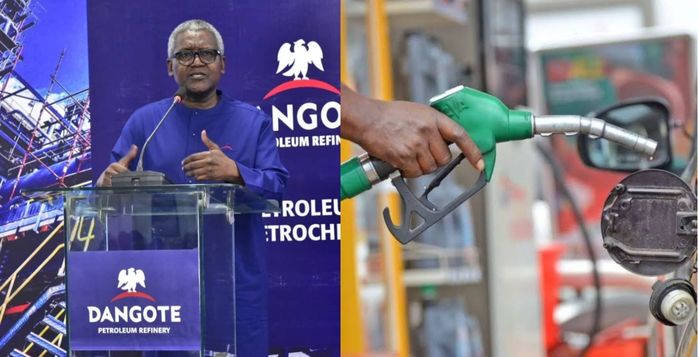With the lingering crisis in Rivers State, a major oil-rich state in the Niger Delta, there are concerns that it poses a significant threat to Nigeria’s economy.
The political crisis, which stemmed from a power struggle between the suspended Governor, Siminalayi Fubara and his predecessor, Nyesom Wike, who is also the FCT Minister, has dragged on for more than 18 months.
Join our WhatsApp ChannelAnalysts believe that Wike’s influence over the Rivers State House of Assembly, particularly through Speaker Martin Amaewhule and 27 pro-Wike lawmakers, created a parallel power structure that challenged Fubara’s authority. The conflict intensified when Fubara attempted to bypass the pro-Wike lawmakers by presenting the 2024 budget to a faction of only four lawmakers loyal to him, leading to legal challenges and a series of court rulings.
After the Supreme Court ruling on 28 February 2025, ordering the suspension of the statutory monthly allocation to Rivers State, recognising the 27 pro-Wike lawmakers and ordering Fubara to present the 2025 budget to the lawmakers, the governor expressed willingness to obey the apex court judgment. However, he said the lawmakers rebuffed every attempt by him as they were steeply involved in plotting to impeach him.
To the greatest surprise of many and for the first time in more than a decade since the administration of President Olusegun Obasanjo, President Bola Tinubu on March 18, 2025, declared a state of emergency in Rivers State, suspended the governor, his deputy and members of the House of Assembly.
Tinubu’s reason was that the governor had failed to resolve the crisis in the state, and he can’t fold his hands as the leader of the country and watch things go out of hand. He also cited the recent explosions on oil and gas facilities in the state and linked it to recent threats by alleged militants to damage oil and gas infrastructure because of the suspension of Rivers State’s monthly allocations.
The action has elicited nationwide reactions with many, including opposition political leaders, civil society groups and activists, condemning the action, saying it is against the principles of democracy. While former President Goodluck Jonathan warned about the implications on Nigeria’s image in the international community, Nobel Laureate, Prof Wole Soyinka, pointed out that the constitution granted too much power to the president and called for a review to reflect true federalism that preserves the autonomy of states or sub-nationals.
The appointed sole administrator, Vice Admiral Ibok-Ete Ibas (rtd), had during his inaugural address in Port Harcourt on Thursday, March 20, said his mandate is to restore peace and stability in the state, warning that his administration would not tolerate lawlessness and any act of violence.
READ ALSO: Rivers Sole Administrator Suspends Political Office Holders
To Tinubu and Wike’s supporters, the steps taken so far seem to be a masterstroke in nipping the crisis in the bud. However, others believe that more crises may brew if things are not properly handled. This is as the sole administrator has allegedly made a move to appoint caretaker local government administrators.
To Tinubu and Wike’s supporters, the steps taken so far seem to be a masterstroke in nipping the crisis in the bud. However, others believe that more crises may brew if things are not properly handled. This is as the sole administrator has allegedly made a move to appoint caretaker local government administrators.
A group known as the Rivers Emancipation Movement has kicked against the move, threatening to take to the streets if the sole administrator goes ahead to appoint caretakers for the LGAs. The group argued that if implemented, it would be a direct violation of the Nigerian constitution and the recent Supreme Court judgment affirming the autonomy of local governments.
“The Supreme Court’s ruling has made it unequivocally clear that local governments must be governed by elected officials, not appointed administrators. Any action contrary to this legal provision will undermine democratic governance, erode public trust, and set a dangerous precedent for executive overreach,” the group stated, urging the sole administrator to uphold the rule of law and respect democratic principles.
Economic Implications
The ongoing political crisis has significant implications for the country’s economy, given Rivers State’s strategic importance.
There are fears that the crisis could lead to disruption of oil and gas production. Rivers State is a major hub for Nigeria’s oil and gas industry, hosting key facilities like: Port Harcourt Refinery, Onne Oil & Gas Free Zone (critical for exports), and major oilfields operated by multinationals and indigenous oil and gas firms. Other critical infrastructure include the Trans Niger Pipeline and the Bonny Export Terminal.
Economic Impact
Reduced oil output: This can occur due to protests, vandalism, or shutdowns, leading to lower crude exports from Nigeria and reducing foreign exchange earnings. Already, there have been incidents of pipeline vandalism, notably a fire on the Trans-Niger Pipeline in Bodo, Gokana Local Government Area of the state, disrupting crude transportation. Barely a week after, another devastating blast struck the Soku oil facility operated by Nigeria Liquefied Natural Gas (NLNG) Limited in Akuku Toru Local Government Area of the state. While the cause of the explosions remains uncertain, some have alleged that it was a deliberate attack, linking them with the political tensions in the state.
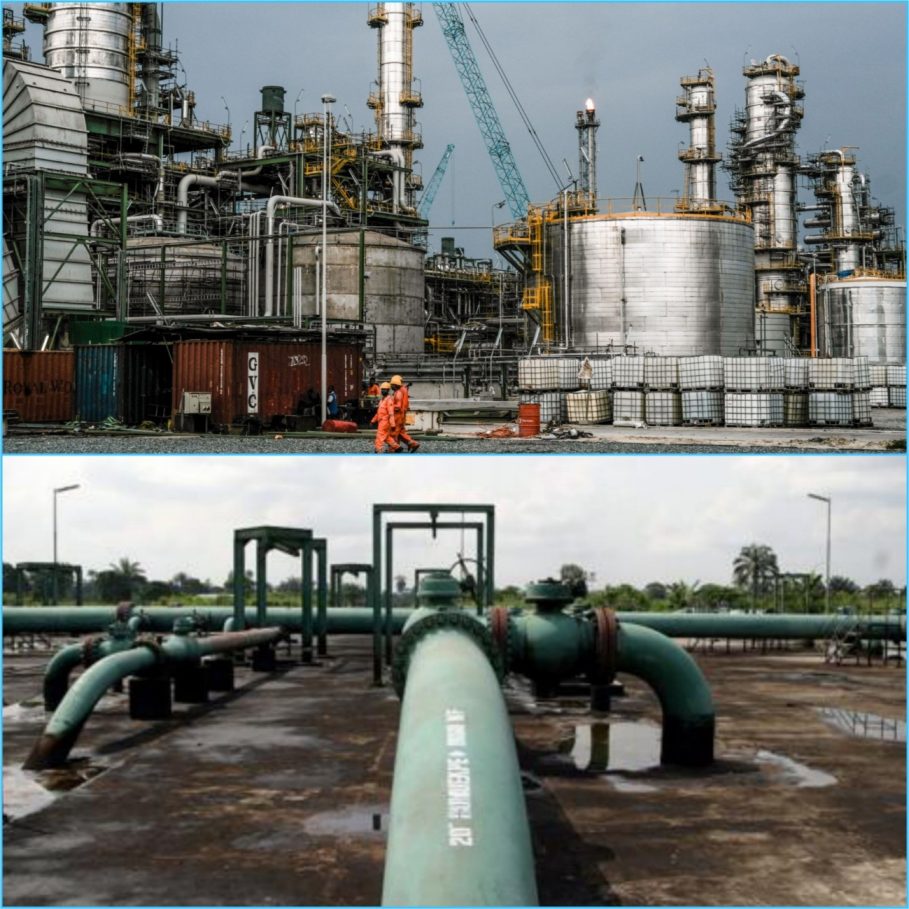
Economist and energy expert, Mr Kelvin Emmanuel, expressed concerns about the implications of the ongoing crisis on oil production. He said the crisis could not have come at a worse time than now when the Federal Government is doing all it can to boost oil production.
“Trying to inflame the political environment in Rivers State could not have come at a worse time,” Mr Emmanuel stated. “Our oil output is currently at 1.4 million barrels per day (BPD) and we are trying to get to 2 million BPD to meet the assumptions of the 2025 budget.”
The Federal Government estimated 2.06 million barrels per day and $75 per barrel as crude benchmark price in the 2025 budget. However, the expert expressed pessimism about the possibility of achieving that target this year given the current United States policy on oil exploration, and other factors.
He said it beggars belief that the Federal government declared a state of emergency in Rivers State over pipeline vandalism in the State.
Gas supply disruptions: The crisis could cause gas disruption which affects power generation and industrial production nationwide.
While commenting on the explosion at the Soku facility, Mr Emmanuel highlighted the huge economic losses to Nigeria. According to him, “the capacity of Soku that feeds NLNG with gas feedstock that will go offline from this attack is 176 million standard cubic feet of natural gas or the equivalent of 3,670 metric tonnes of LNG per day with a market value of $3.1 million each breaking morning, 176m SCF is about 14.2% of their current feedstock intake.”
Decline in government revenue: As oil accounts for over 80% of Nigeria’s export earnings and about 50% of government revenue, the disruption in oil production could lead to drop in oil output that would affect government revenue.
Threat to Foreign Investment
Investors in the oil, gas, and maritime sectors may delay or withdraw projects due to instability.
Increased Security Costs
The government may need to deploy more security forces to tackle threats and secure strategic places and infrastructure, thereby diverting funds from development projects.
Oil theft and pipeline vandalism could rise, further hurting revenue.
Decline in State and Local Business Activity
Rivers State contributes significantly to Nigeria’s GDP. Political instability can lead to: business closures, job losses, and reduced tax revenues for the government.
Potential for Wider Economic Instability
Analysts believe that if the crisis escalates, it could trigger similar unrest in other Niger Delta states, further destabilising Nigeria’s economy.
A prolonged conflict could worsen inflation, unemployment, and economic growth, underscoring the need for political resolution.
Victor Ezeja is a passionate journalist with six years of experience writing on economy, politics and energy. He holds a Masters degree in Mass Communication.

